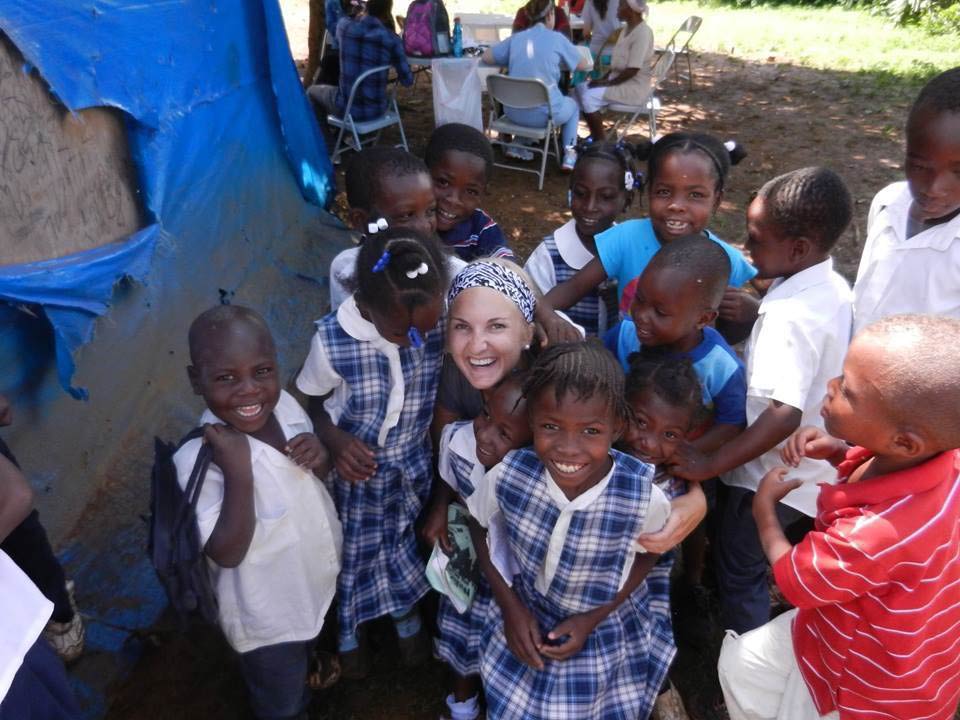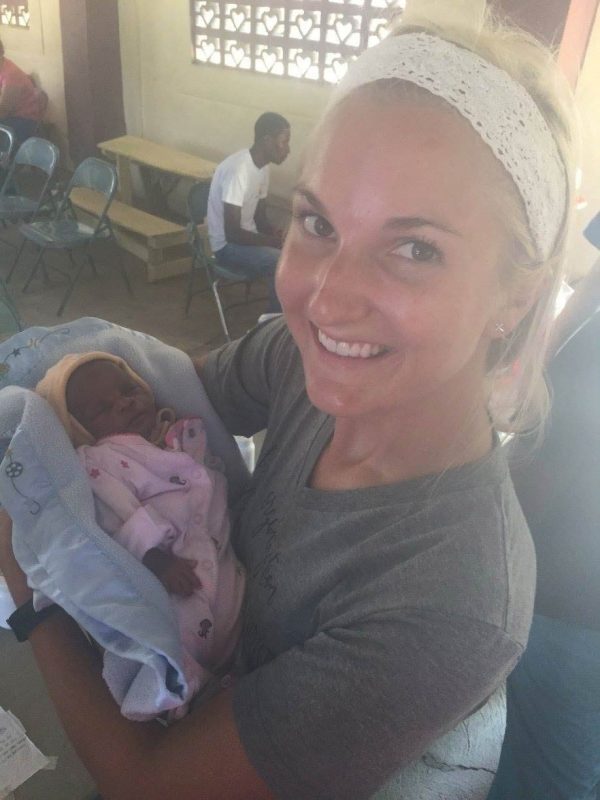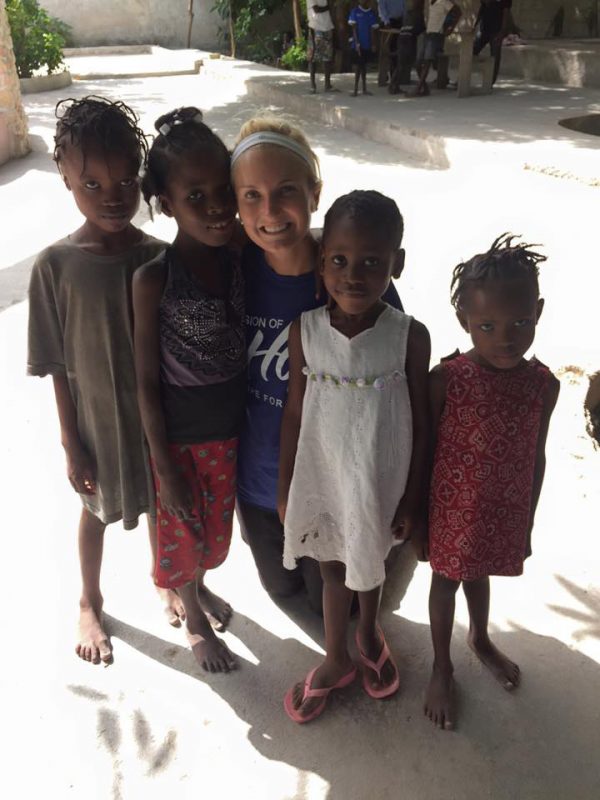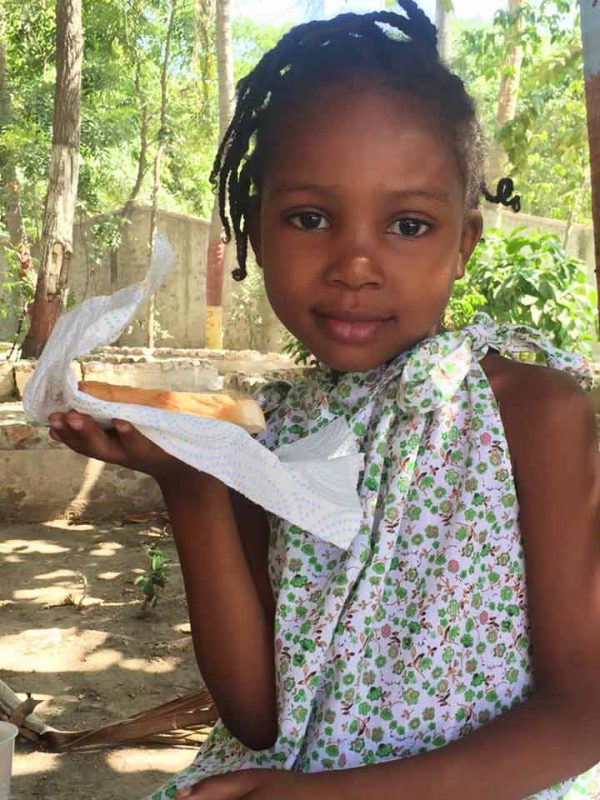This Medical Mission Trip Miracle Will Restore Your Faith

When Jesus got the news, he slipped away by boat to an out-of-the-way place by himself. But unsuccessfully—someone saw him, and the word got around. Soon, a lot of people from the nearby villages walked around the lake to where he was. When he saw them coming, he was overcome with pity and healed their sick. Toward evening, the disciples approached him. “We’re out in the country, and it’s getting late. Dismiss the people so they can go to the villages and get some supper.” But Jesus said, “There is no need to dismiss them. You give them supper.” “All we have are five loaves of bread and two fish,” they said. Jesus said, “Bring them here.” Then, he had the people sit on the grass. He took the five loaves and two fish, lifted his face to heaven in prayer, blessed, broke, and gave the bread to the disciples. The disciples then gave the food to the congregation. They all ate their fill. They gathered twelve baskets of leftovers. About five thousand were fed. (Matthew 14:13-21, The Message)
The year I graduated college, in 2015, I accepted God’s calling and moved to Haiti for a medical internship. There were so many unknowns: where I would be living, who I would be serving with (I didn’t know anyone), and what my day-to-day life would look like for the next three months. I just knew that God wanted me there.
I got onto a plane with two suitcases and a backpack and traveled to Haiti. I spent the next three months working in mobile clinics north of Port-au-Prince Monday through Thursday, doing medical outreach to patients who desperately needed more critical care such as surgeries, diabetes management, and hydrocephalus, to name a few, and also taking care of sick guests who came to stay at our mission when we weren’t out serving.

Every day for mobile clinics, we would leave our mission in the morning, drive to a village (anywhere from 20 minutes to three hours away), and set up our clinic in a church, a school, or outside under a mango tree. Our daily crew consisted of Haitian translators, interns, resident nurses and drivers, about 10-15 staff members total, and those who came down to the mission to serve for the week, which was anywhere from 5-25 American guests.
Our clinic consisted of an intake, triage, provider (advanced provider or physician), pharmacy, and lastly, ending with our pastor to pray over our patients. Throughout the entire process, it was encouraged to pray for our patients and talk to them about Jesus if they did not have a personal relationship with Christ.
We would spend roughly six hours seeing patients, then pack up our clinic, and drive back to our campus. In that six-hour time frame, we would see patients nonstop; there were days we would see around 150 patients. We would take lunches individually so our clinic wasn’t abruptly stopped. Lunches usually consisted of a packed cooler of peanut butter and jelly sandwiches eaten in our vehicle.
About halfway through the summer, our medical pastor expressed his concern about a couple of orphanages in Port-au-Prince where he wanted to set up mobile clinics. He heard that the children were in pretty bad condition and needed medical care in particular.
On this specific week, we had about 10 medical guests in town to serve alongside us at our mobile clinics. These guests were mostly registered nurses and a sweet family of four—the two adults were both physicians, and two daughters, one of which was planning on pursuing pre-med following high school graduation. The other daughter, Rachel, was in middle school.

On the first two days of this week, we went up to a beautiful village in the mountains and set up a mobile clinic. Rachel, who thought she wouldn’t have anything to give during the mobile clinics, hung out with me (mostly in the pharmacy), and brought coloring books and crayons and even played a game of soccer (with an empty soda bottle as the ball) with some of the children.
On the next two days, we headed to the orphanages. We were shocked when we got to one of the orphanages in particular. We came into a large, concrete fenced courtyard, entered through the gate, and were met by the orphanage directors. There were roughly 80 children, aged 2-16.
Typically when we arrived to a village, the children all ran out of their homes and yards to greet us and play with us, as it was uncommon to see trucks, yet alone the “blan” (white people). This orphanage was different; the children were all very quiet and lethargic. We tried to play jump rope, toss a ball with them, and color, but none of them wanted to—they wanted to be held. When we held these precious children, we noticed that they were tiny, skinny, their hair was laden with orange, and their bellies large and distended. I remember holding a sweet little girl and being able to feel every boney prominence in her back.
We started our mobile clinic, and our translators began asking the children if there was anything that was hurting them, or if they didn’t feel well. One after another, these children pointed to their distended stomachs, or they said their tummy hurt. Confused, once we started to see a trend, we started asking the older children why their tummies hurt, and what made it better. They told us their tummies hurt all the time, and it was only relieved by eating food. So, the next question was, “when was the last time you had any food?” and they responded, “Sunday. Four spoonfuls of soup each. And the pain in our tummies went away.” We were at this clinic on a Wednesday.
That’s when we, and the resident nurses and staff, realized these children were literally starving to death. There was such an uneasy, anxious, nauseating feeling from every member of our team on this day. Our pastors and translators started asking some of the older children about their lives at this orphanage. Most of the children here had lost their parents from the earthquake in 2010. The older children had also disclosed to us that there were more children who used to live here, but they had run away in hopes of having a better life living on the streets of Port-au-Prince.
Once we realized what was happening at this orphanage, it was about lunchtime, and one of our resident nurses quietly told every staff member and medical guest to eat their lunch individually and discreetly in our vehicles. Once everyone was done eating, there were two loaves of bread left, half a jar of jelly, and half a can of leftover peanut butter. Our resident nurse looked at Rachel and said, “Make as many sandwiches as fast as you can.”
So, we started making sandwiches. We figured we would make about 20 sandwiches and then cut them in fourths so all the children could eat. But every time we reached into the bag for another piece of bread (thinking this would be the last piece), the bread kept coming. Once we ran out of the ingredients, we counted all the sandwiches to figure out how we should divide them; we counted once, twice, then three times. But we didn’t need to divide them. We were beside ourselves, thinking that it wasn’t logically possible that two loaves could have provided this many sandwiches.
We lined the children up from youngest to oldest near the truck and started handing out the sandwiches. And one by one, the children ate the sandwiches, and somehow, all 80 children were fed with those two leftover loaves of bread.

Still, to this day, I know in my heart that our Lord Jesus provided us a miracle at that orphanage. There is no earthly way that two supermarket loaves of sandwich bread could feed 80 children—the typical loaf of bread contains 18 sliced pieces. It was the modern-day miracle of the Lord feeding the five thousand.
That summer, I saw God move mountains and do incredible things to my heart and to others through me. My mindset before going to Haiti that summer was that I was going to do so much good that I would be such a blessing, but I was wrong—it wasn’t about me and what I was going to do. It was all about Jesus and what he was going to do to me, to my heart, and to others through me.
In the midst of uncertain times, when you believe nothing is going right and that everything bad is happening to you, your family, the economy, the nation, the world … know and believe that Jesus is working everyday miracles right in front of your eyes. He is good, He is kind, He is faithful, and He loves you. Jesus is with us in these uncertain times.
—
You’ll love this podcast episode from This Grit and Grace Life: How to Handle Real-Life Struggles That Challenge Your Faith – 112

